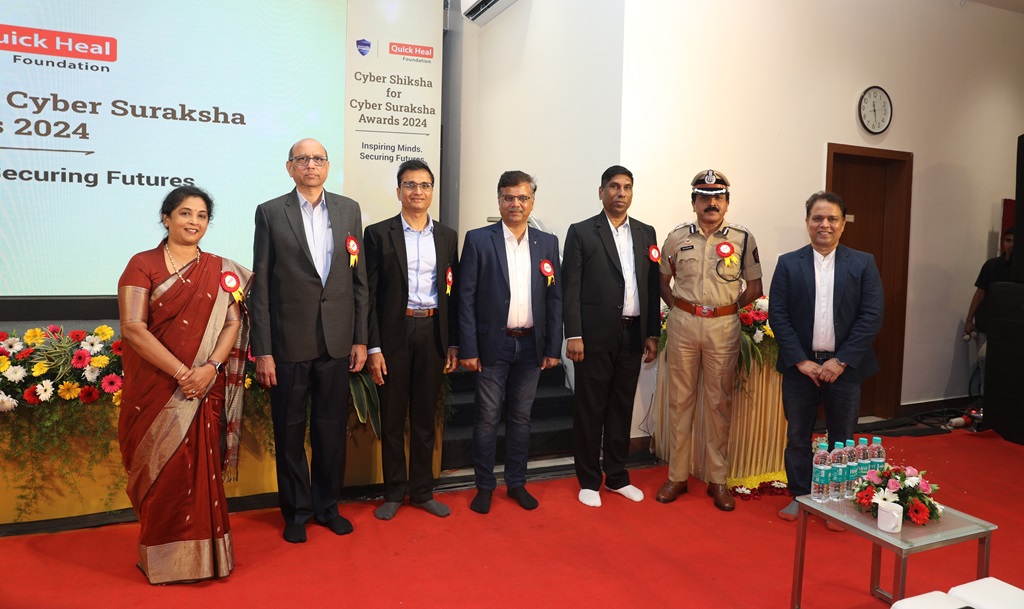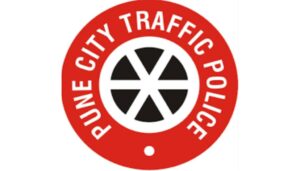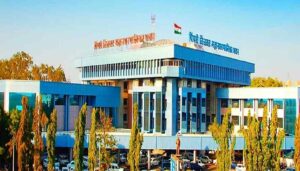Cybercrime Takes A Toll: Only 10% Of Rs 1,300 Crore Recovered In Maharashtra Since 2019; Everyday People Losing Rs 3 Crore

Pune, 10th February 2024: In the ongoing battle against cybercrime, Maharashtra has struggled to recoup losses, with just Rs 134 crore, or 10% of the total Rs 1,300 crore lost since 2019, recovered through police investigations, revealed Deputy Inspector General of Police Sanjay Shintre from Maharashtra Cyber, nodal agency for cyber security and cybercrime investigation for Maharashtra.
Speaking at an event organized by cybersecurity solution firm Quick Heal Technologies on Saturday, DIG Shintre emphasized the need for a stronger system to combat cybercrimes. Despite the police force’s efforts, he highlighted that the cybercrime police in the state receive a staggering 4,000-5,000 calls daily from victims. There is a daily monetary loss of Rs 3 crore in Maharashtra.
The event, aimed at raising cybersecurity awareness, focused on engaging students, teachers, and institutions in spreading cybersecurity initiatives. DIG Shintre revealed that in 2022, Maharashtra witnessed 8,249 cybercrime cases, a notable 48% increase from the 5,562 incidents recorded in the previous year, according to National Crime Records Bureau (NCRB) data. Nationally, a total of 65,893 cases were reported in 2022.
Highlighting the state government’s initiative, he announced the upcoming rollout of a comprehensive cybersecurity project. The project comprises six verticals, including command, security operations, and network operations centers. A helpline under the project, staffed by around 140 engineers, will receive complaints, directing them to respective police stations, with a significant number of cases investigated centrally.
DIG Shintre shed light on the vulnerability of migrant workers to online scams, especially when seeking additional income. He noted that cybercriminals exploit this by using enticing baits on social media and other websites.
Referencing the ‘sunk-cost fallacy,’ he explained that victims, despite suspecting potential fraud, continue engaging in suspicious activities due to their prior investments of time and money. Cybercriminals capitalize on this behavior to their advantage.
The IPS officer also highlighted the use of fake online profiles of police officers and other authorities by cybercriminals to intimidate victims. These criminals often lure victims into video calls, posing as police officers and coercing them into making payments.
In India, cybercriminals target 1-2 crore people daily, with 120 crore internet users in the country, 80% of whom use smartphones, according to data from various agencies. The alarming statistics underscore the urgent need for robust measures to counter the growing threat of cybercrime.
Quick Heal Foundation, the CSR arm of Quick Heal Technologies Limited, a global cybersecurity solutions provider, hosted the 2024 edition of the ‘Cyber Shiksha for Cyber Suraksha Awards’ on February 10th (Saturday) in Pune, Maharashtra. The ceremony recognizes the outstanding efforts of the volunteering institutions, teachers, and students who have participated in its flagship initiative ‘Cyber Shiksha for Cyber Suraksha’.
The award ceremony was graced by Anupama Katkar, Chairperson, Quick Heal Foundation, Prof. V. L. Maheshwari, Vice Chancellor of Kavayitri Bahinabai Chaudhari North Maharashtra University, Jalgaon, Prof. (Dr) Prakash A. Mahanwar, Vice Chancellor of Punyashlok Ahilyadevi Holkar Solapur University, Sanjay Shintre, DIG– Maharashtra Cyber and the academicians from 29 participating institutions.

The ‘Cyber Shiksha for Cyber Suraksha’ initiative aims to create awareness and educate the masses, especially the marginalized sections of society, about the importance of cyber safety and the best practices to follow in the digital world. The initiative has sensitized over 47 lakh students, teachers, and the general public on various aspects of cybersecurity, such as identifying cyber threats, practicing cyber hygiene, prevalent cyber laws, and cyber ethics, through collaborations with local educational institutions and street plays. Under the same initiative, the Foundation has launched an ‘Earn & Learn’ program aimed to empower the youth of the country. This program purposely engages and trains student volunteers strengthening their skill set to become future leaders of the country. These students relentlessly join the cause of spreading cyber awareness amongst communities at large in the most creative ways possible. In the past year, the initiative has touched over 8 lakh lives alone.
The nominations for the awards came from 6 zones across Maharashtra and Karnataka, reflecting the widespread impact of the program. The awards were given under the categories of Cyber Suraksha Warriors (Students), Cyber Safety Champions (Teachers), and Cyber Shiksha Champion of the Year (Institutions), based on the data received from the colleges describing the action, activities, and outreach efforts. Cyber Warriors were awarded in 3 categories – Best Process Compliance, Highest Outreach & Impact, and Outstanding Performance, while Cyber Safety Champions were awarded in 2 categories – Best Process Compliance and Extra Mile Recognition. Cyber Shiksha Champions received awards in 3 categories – Best Process Compliance, Special Appreciation for Media Outreach, and Creative Performance. With six winners each, the diverse categories highlighted exceptional contributions & achievements by all volunteers.
Speaking on the occasion, Anupama Katkar, Chief of Operational Excellence, Quick Heal and Chairperson of Quick Heal Foundation said, “It makes me proud to share the profound impact of our CSR initiatives, positively influencing the lives of over 50 lakh individuals, especially the ones living in remote corners of the country. What better way to commemorate this achievement than through the 2024 edition of the ‘Cyber Shiksha for Cyber Suraksha’ Awards. This momentous ceremony not only recognizes the invaluable contributions of volunteering institutions, dedicated teachers, and enthusiastic students, who have displayed exemplary commitment to spreading the crucial message of cyber safety to the masses. It also serves as a testament to our unwavering commitment to inspire and empower the youth—the future leaders of our nation. I extend my heartfelt gratitude to all our partners, local state administrations, the Police, Maharashtra Cyber, and industry bodies, including Nasscom, for standing with us in our mission to establish ‘cybersafety as a fundamental right for all’. Together, we aspire to ignite a movement that encourages more & more individuals to join us in creating a cyber safe and secure India.”
Prof. V. L. Maheshwari, Vice Chancellor of Kavayitri Bahinabai Chaudhari North Maharashtra University, Jalgaon, commented, “The ‘Cyber Shiksha for Cyber Suraksha’ campaign is not just about imparting knowledge on cybersecurity but is a noble cause that shapes the future of our nation. Motivating faculty and students to actively participate in this endeavor not only enhances their skills but also equips them for a lifetime of success. I am proud to witness our volunteering students contribute to this vital mission, laying the foundation for them to become future leaders and cyber guardians of our society.”
Prof. (Dr) Prakash A. Mahanwar, Vice Chancellor of Punyashlok Ahilyadevi Holkar Solapur University, resonated a similar sentiment by saying, “By participating in this initiative, our students not only gain valuable knowledge but also acquire a skill set that will undoubtedly contribute to their success in future roles.”
Quick Heal Foundation has been working relentlessly towards the social well-being of the nation, addressing critical areas such as education, skill development, and primary healthcare by promoting community participation, diversity, and inclusion, through various impactful programs and campaigns. Aligned with the United Nations’ Sustainable Development Goals (SDGs), 4, 5, 8, 9, 10, & 17, these initiatives have exceeded expectations with their impact reaching the remotest tribal communities, marginalized sections of society, and communities-at-large. The foundation has reached a significant milestone in touching the lives of over 50 lakh individuals through its initiatives in health and education across the nation.
Apart from the ‘Cyber Shiksha for Cyber Suraksha’ initiative, Quick Heal Foundation has also contributed significantly towards youth empowerment by bridging the skill set gap through initiatives such as Earn and Learn, the Faculty Development Program. The foundation has also worked towards promoting healthcare in the remotest of regions through the Arogya Yan (fully equipped medical vans) Donation program. Outreach programs conducted by Quick Heal Foundation, such as Life Skill Education, the Shaalangan Counselling Centre, Tribal Development Project, Arogya Mansampada, etc., have been instrumental in fostering personal development and well-being among the country’s youth, especially individuals residing in underserved regions.





